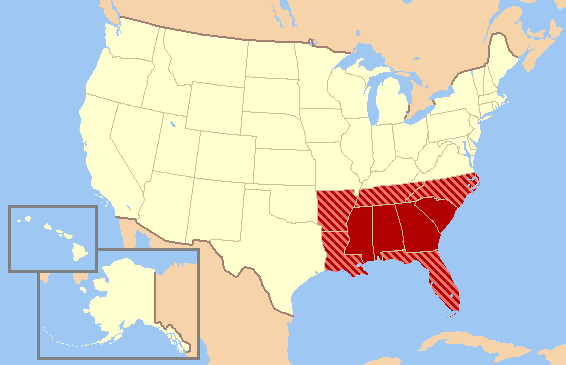
Following World War II there was increased racial intolerance as White Americans largely ignored the contribution of Black and Japanese Americans from the war. In addition, jobs taken over by Blacks while white soldiers were in the war were expected to be returned to the whites following their arrival home from the war. This, coupled with the start of cookie-cutter suburban neighborhoods on the outskirts of urban centers, led to more radical racial segregation, including the advent of the "separate but equal" stipulation. This was not changed until the 1954 court case of Brown vs. the Board of Education.
While Carter did call attention to this racial segregation and the unequal treatment of Black and Japanese Americans, his upbringing in the South did result in some contradictory beliefs. Carter opposed anti-lynching laws, and thought the desegregation of schools in Mississippi was unwise. Some critics wonder how he can be praised for his fight for justice in racial equality while still maintaining some distinctively racial opinions.
Claude Sitton postulates her own opinion on this matter in a review of Carter's work, stating : "Absent his efforts and those of other Southern editors of courage and like mind, change would have come far more slowly and at far greater cost."
Thanks to the small but mighty waves Carter created with his editorials, the path began to form for another leader in promoting equality less than 20 years later - Martin Luther King Jr.


No comments:
Post a Comment